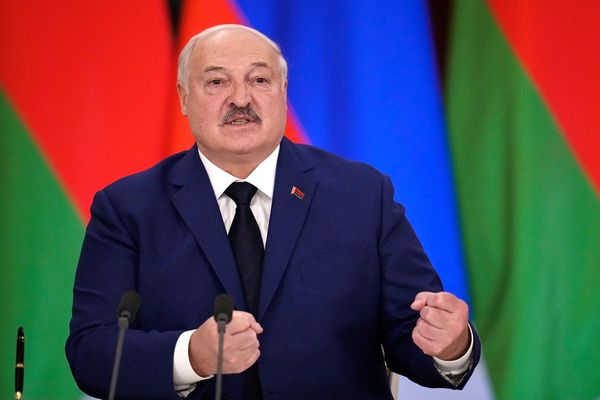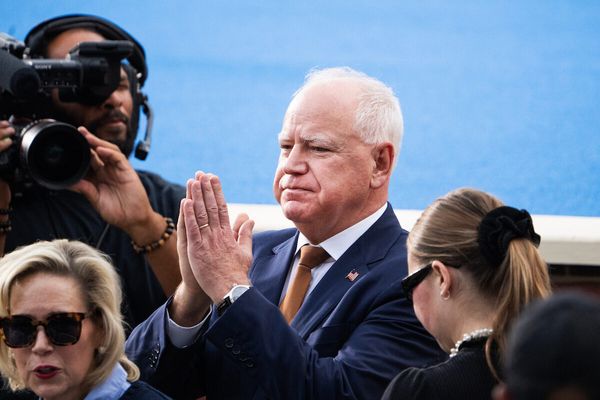In the 1980s, Dr. Paul Farmer set up a community health clinic in a remote part of Haiti. Within a decade, it grew to include a hospital and ambulatory clinic. Today, it's one of the world's most important international nonprofit health organizations.
A Harvard Medical School graduate, Farmer wasn't just a do-gooder who wanted to help the poor. He sought to hire and train locals to staff the medical facilities.
One day, a 13-year-old girl arrived by donkey ambulance at the hospital. Two young Haitian physicians tried to treat her, but she continued to moan in pain.
Sizing up the situation quickly, Farmer realized the doctors' error. But rather than berate them, he said in a stern but gentle voice, "Doctors, doctors, what's going on with you?"
He told them not to give an antibiotic to a patient with meningitis until performing a spinal tap to learn more.
"There was calculation behind many of the things he did," said Tracy Kidder, author of "Mountains Beyond Mountains: The Quest of Dr. Paul Farmer, A Man Who Would Cure the World."
Teach, Don't Demean
Kidder, who witnessed this exchange, marveled at how Farmer pointed out the young doctors' mistake without embarrassing them. Instead of lashing out and adopting a harsh tone, he was plaintive.
Farmer (1959-2022), who earned both an M.D. and Ph.D. from Harvard, co-founded Partners In Health in 1987. A central part of his life's work, the Boston-based nonprofit brings health care to the poor in many countries.
Instinctively, Farmer understood how to earn others' trust. He had an uncanny ability to connect with all types of patients.
As a leader, he was a formidable role model. His passion for his work drove him to prioritize patient care above all else. His team needed to race to keep up.
"No one worked harder than him," Kidder said, pointing out his mental and physical stamina. "He led by example. He never quit."
Kidder recalls meeting a young employee who believed deeply in Partners In Health's mission. "I wouldn't trade a minute working there," she told Kidder. "But it was agony for me. The work was so hard, but so inspiring."
Stay Calm In Peril Like Paul Farmer
Farmer died at age 62 in February 2022 from an "acute cardiac event" on the grounds of a hospital he helped establish in Rwanda, according to Partners In Health. He won the MacArthur Fellowship "genius grant" in 1993 and the $1 million Berggruen Prize in 2020, among a long list of awards for his groundbreaking advances to save lives around the world.
Much of Farmer's work involved extraordinary risk and high stress. He'd confront military troops who threatened him. He'd hike for hours across treacherous terrain to visit a patient in rural Haiti.
But he managed to keep calm and carry on.
Jim Yong Kim, a co-founder of Partners In Health, recalls that Farmer would pick up hitchhikers whenever he drove around Boston.
When one of them pulled a knife, Farmer replied, "All I have is $10. You can have that. And you can have my clothes. It would be great if you'd put that knife down."
The thief was so disarmed by Farmer that he thanked him before running off with the cash and some of his clothes.
"At that moment, Paul was thinking about this guy who was so desperate that he thought doing this was the only way he could survive," said Kim, president of the World Bank from 2012 to 2019.
When smuggling $10,000 into Haiti to give to the pacifist resistance against the military junta in the early 1990s, Farmer knew the situation was fraught.
"It was incredibly dangerous to him, but he knew it was more dangerous to the people who would suffer" if that money didn't get into the right hands, Kim says.
Farmer: Learn The Culture
Farmer gained acceptance everywhere he went. Before attempting to open a medical clinic or offer other services in an unfamiliar place, he studied the country and its inhabitants.
Kim says that Farmer, who was also a medical anthropologist, excelled at ethnography. He would research a culture and seek to understand the daily lives of the poor and the challenges they faced.
Such research started with questions such as, "Who are these people and what do they want?" "What's the social system here?" and "Where does power lie?"
Collecting the answers in a nonjudgmental way gave Farmer and his team the insight to deliver the most needed care in the most effective way.
"What was so unusual was his deep love and compassion for people," said Dr. Joia Mukherjee, chief medical officer at Partners In Health. "He met everyone with the same open heart. He assumed the best in everyone."
Set High Goals
Farmer set lofty goals and never lost sight of his vision for creating sustainable systems to deliver patient care in some of the world's most besieged places, even against long odds.
Mukherjee recalls rushing to Haiti after the 2010 earthquake. As she and Farmer assessed the damage to the general hospital and a collapsed nursing school, they were momentarily overwhelmed.
"We were unmoored by the sadness and grief," she said. Then they turned to each other and agreed that they needed to restore medical education.
"We knew we had to train the next generation of doctors and nurses," Mukherjee said. "We asked, 'What's the good we can make in the future?' That led us to build a university hospital in Mirebalais where we've trained hundreds of doctors and nurses, most of whom have stayed in Haiti."
Set The Moral Standard
Many leaders articulate their core values. Instead of drafting a list of his foundational beliefs, Farmer and his team identified what they called AMCs (areas of moral clarity).
Farmer's moral convictions were unshakable, Kim says. One example: Standing on the side of the poor.
"It's having a moral compass and being clear about what you want to accomplish," Kim said. Establishing a clear, nonnegotiable understanding of what to do despite myriad obstacles helped Farmer achieve big goals and win over critics.
When challenged by public health officials about the cost of treating HIV patients in impoverished parts of the world with the newest medications, Farmer didn't flinch. Responding to criticism that resources were limited and cutting-edge drugs were expensive, he'd say, "Never once have I had a patient say, 'Don't treat me. I'm not cost-effective.'"
Remember Names: Paul Farmer Retained Details
Farmer expended great effort to remember names of people he met — from poor patients to wealthy donors — along with biographical facts about their life.
"He'd remember so many tiny details to make people feel important," Mukherjee said. "Their kids' names. Their hometown. People felt Paul liked them the best."
On trips to places such as Haiti and Rwanda, Paul English watched how Farmer would shift into "laser-focused mode" when caring for a patient. Farmer leveled with patients and spoke with clarity and compassion.
"He spoke very plainly," said English, a Boston-based serial entrepreneur and co-founder of Kayak. "He had this combination of humility and confidence."
After his death, a weeping Dr. Anthony Fauci said, "He called me his mentor, but in reality he was more of a mentor to me."
Paul Farmer's Keys:
- A Harvard-trained doctor who saved countless lives around the world by establishing health care systems in impoverished areas.
- Lesson: Overcome stress and regroup after setbacks by looking beyond your own personal predicament to focus on helping people in need.
- "I don't care how often people say, 'You're a saint.' It's not that I mind it. It's that it's inaccurate. People call me a saint and I think, I have to work harder. Because a saint would be a great thing to be."







